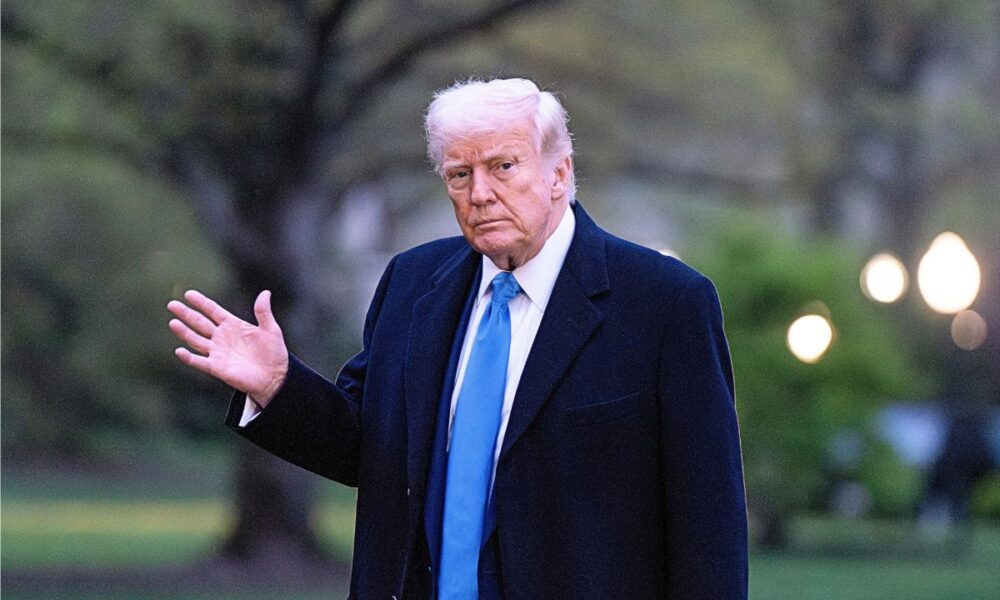President Donald J. Trump’s position on the H-1B visa program has undergone one of the most striking evolutions of his political career, swinging from vows to abolish it to recent moves suggesting support for reforms, exemptions, and stating that it is essential.
In a recent appearance on Fox News with Laura Ingraham, Trump pushed back against suggestions to curb the program, saying it is essential for filling specialized roles in industries such as manufacturing.
“We have plenty of talented people,” Ingraham said.
“No, you don’t,” Trump replied. “You don’t have certain talents, and people have to learn. You can’t take people off an unemployment line and say, ‘I’m going to put you into a factory where we are going to make missiles.'”
While the apparent softening of the President’s view drew significant chatter, it is far from the first time his position has oscillated.
November 2025: In the Ingraham interview, Trump said the U.S. must “bring this talent” via H-1B, arguing, “You can’t just say a country is coming in. Going to invest $10 billion to build a plant and get — take people off unemployment line who haven’t worked in five years, and they are going to start making missiles, it doesn’t work that way.”
September 2025: The Trump administration issued a proclamation requiring a $100,000 fee for new H-1B petitions, with potential waivers available for national interest cases.
August 2025: White House approves shifting the H-1B lottery to a weighted system favoring the applications with the highest salaries.
December 2024: Trump told the New York Post he supports H-1B visas, saying, “I’ve always liked the visas, I have always been in favor of the visas. That’s why we have them… I have many H-1B visas on my properties. I’ve been a believer in H-1B. I have used it many times. It’s a great program.
March 2020: Trump signed an executive order suspending new H-1B visas through the end of the year, along with other non-immigrant work visas and a freeze on green cards for new immigrants, amid the COVID-19 pandemic.
June 2019: The administration was considering caps on H-1B visas for countries like India, sources told Reuters.
January 2019: Trump posted on X, “H1-B holders in the United States can rest assured that changes are soon coming which will bring both simplicity and certainty to your stay, including a potential path to citizenship. We want to encourage talented and highly skilled people to pursue career options in the U.S.”
2017: Trump’s administration oversaw a 41% increase in H-1B petition denials in the fourth quarter of fiscal year 2017, according to a National Foundation for American Policy report.
March 2016: During his campaign, Trump said, “The H-1B program is neither high-skilled nor immigration: these are temporary foreign workers, imported from abroad, for the explicit purpose of substituting for American workers at lower pay. I remain totally committed to eliminating rampant, widespread H-1B abuse… I will end forever the use of the H-1B as a cheap labor program, and institute an absolute requirement to hire American workers first for every visa and immigration program. No exceptions.”
While the President stated that there is a lack of talented Americans in industries that commonly use the H-1B visa, there are simultaneously elevated levels of unemployment in some of those sectors. The tech industry is by far the largest user of H-1B visas, according to updated federal data reported by The Dallas Express.
Unemployment among computer engineers is at 7.5%, and underemployment is at 17%, according to the Federal Reserve Bank of New York’s report earlier this year. For computer science graduates, the unemployment rate was reportedly 6.1%, with underemployment at 16.5%.
A survey by the workplace app Blind found that more than half of U.S. citizens believe the program creates “unfair competition,” according to reporting by DX.
The latest policy changes Trump announced have drawn divergent responses from American companies. Walmart reportedly halted job offers for applicants who need H-1B visas in October.
In contrast, Nvidia’s CEO reportedly told staff that the company will “continue to sponsor H-1B applicants and cover all associated fees.”
Interested parties supporting or opposing the reform to weight the visa allocation process can read this DX guide and participate in the ongoing federal public comment period.


